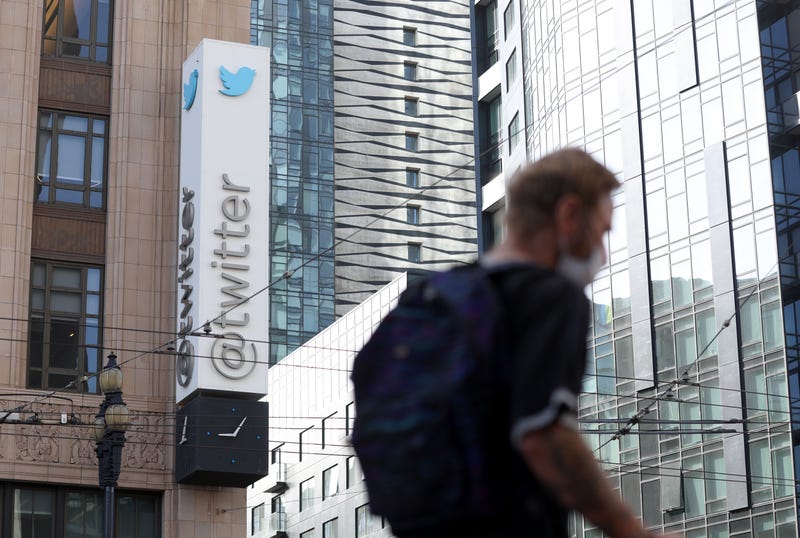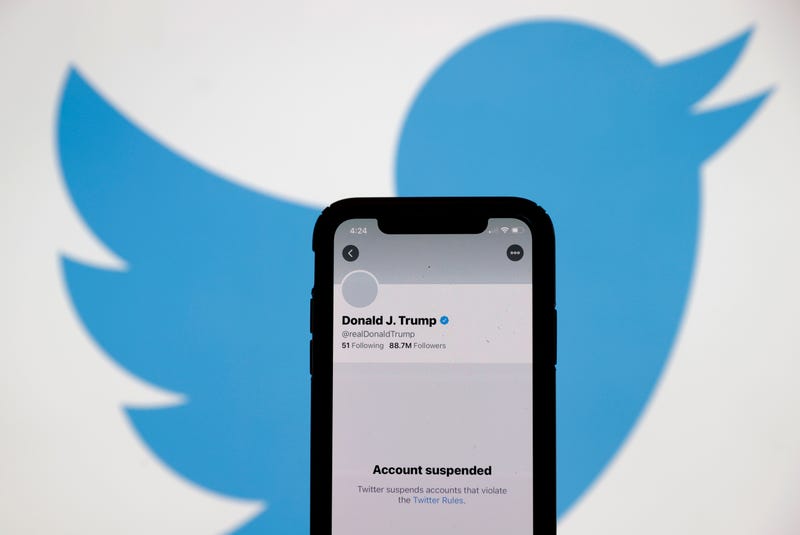
SAN FRANCISCO (KCBS RADIO) – There is no empirical evidence that San Francisco-headquartered Twitter favors liberal users over its conservative ones, according to a number of studies.
For more, stream KCBS Radio now.
Contrary to presumptive platform purchaser Elon Musk's May 9 tweet to a conservative conspiracy theorist that Twitter has a "strong left wing bias" and his claim at a Financial Times conference a day later that the company's presence in the San Francisco Bay Area gives it a "strong left bias," a number of independent studies and Twitter's own research shows that no such bias exists.
"There is no study that shows that, statistically speaking, conservatives are excluded because they're conservatives," Paul Barrett, Deputy Director of the New York University Stern Center for Business and Human Rights, told KCBS Radio in an interview last week.
Barrett co-wrote a paper last year that found zero "trustworthy large-scale studies have determined that conservative content is being removed for ideological reasons or that searches are being manipulated to favor liberal interests" on Twitter and other social media platforms.
Other research, meanwhile, has shown that conservative content often outperforms liberal content.
A Twitter study published last year found that its algorithm amplified Republican politicians and right-leaning news sources' tweets more than those of its Democratic and left-leaning counterparts, respectively.
An Indiana University study published in Nature Communications in 2021 determined that "interactions of conservative accounts are skewed toward the right, whereas liberal accounts are exposed to moderate content shifting their experience toward the political center" on Twitter.
"Partisan accounts, especially conservative ones, tend to receive more followers and follow more automated accounts," the researchers wrote. "Conservative accounts also find themselves in denser communities and are exposed to more low-credibility content."
Echoing those findings, Yale and MIT professors published a study last month that found 19.1% of the Republican accounts they followed had been suspended as of last June, while 4.9% of Democratic users had been suspended because Republican users "shared substantially more news from misinformation sites – as judged by either fact-checkers or politically balanced crowds – than the Democratic users."

Barrett called the Republican refrain that social media is biased against conservatives "disinformation," comparing it to rhetoric centering on false claims of election fraud and baseless allegations that educators and Democratic lawmakers are "grooming" children by teaching and discussing gender identity and sexual orientation.
He said it was dangerous for Musk, who agreed last month to buy Twitter in a $44 billion deal, to be "giving into that kind of falsehood" considering the power he could have over the platform if a deal goes through.
"That's fine if he's just a voter, or giving campaign cash, whatever," Barrett said. "That's his business. But in trying to use Twitter, one of the more influential platforms, as a vehicle for expressing all of this dishonesty, is, I think, a really, really unfortunate thing."
Barrett said he welcomed Musk's previous proposals to publicly share Twitter’s algorithm, as he wrote a white paper earlier this year outlining how the U.S. Federal Trade Commission could use its enforcement powers to require transparency from social media platforms about their algorithms.
But Musk's perceptions of apparent political bias could be further evidence that Musk doesn’t fully understand Twitter's business.
Disinformation, social media and statistical analysis experts criticized the billionaire’s proposal to research the prevalence of Twitter bots in interviews with CNBC last week after Musk claimed his planned purchase was "temporarily on hold" because he doesn't believe Twitter's claims that fewer than 5% of its users are bots.
Musk has also criticized Twitter's content moderation policies, saying he would reverse former President Donald Trump’s ban stemming from the U.S. Capitol insurrection last January and otherwise limit the platform to banning speech that is "illegal," "destructive to the world" or "wrong and bad." Social media experts fear that could make abuse and misinformation worse on the platform, which Barrett said could make Twitter less appealing to advertisers.
The New York Times reported earlier this month told investors he projects Twitter would earn $12 billion in advertising revenue in 2028, up from $4.5 billion last year.
"The unfortunate reality is that if you allow people to come to an internet venue and say and do whatever they want, you'll end up with chaos," Barrett said. "The major social media platforms do content moderation not because they relish the idea of being editors, which is essentially what they've become. They do it because it's a business necessity."
DOWNLOAD the Audacy App
SIGN UP and follow KCBS Radio
Facebook | Twitter | Instagram

